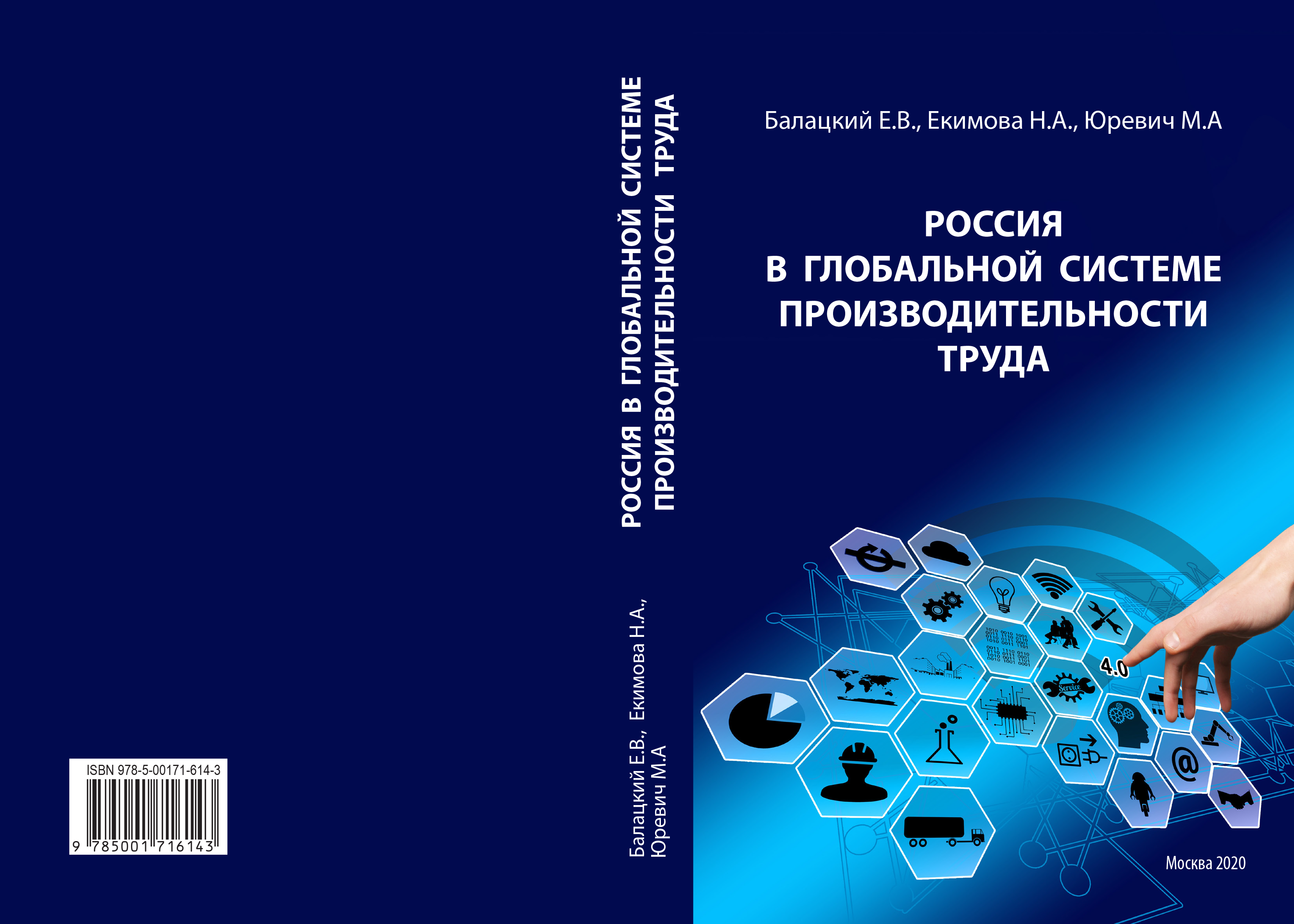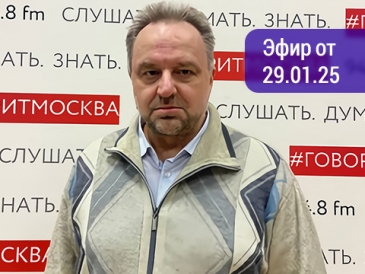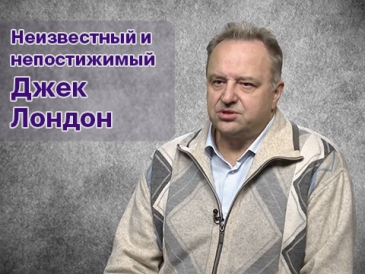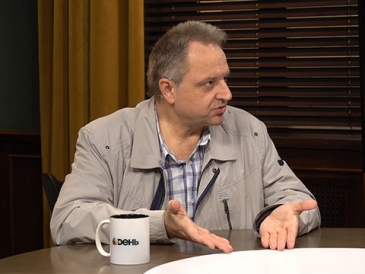В конце 2020 года в издательстве «Перо» вышла в свет книга: Балацкий Е.В., Екимова Н.А., Юревич М.А. Россия в глобальной системе производительности труда. М.: «Перо», 2020. – 377 стр.
Авторы являются сотрудниками Финансового университета при Правительстве Российской Федерации, а один из них представляет также Центральный экономико–математический институт РАН.
В данной монографии авторы предприняли попытку нарисовать «технологический портрет» России на фоне других стран мировой экономики. В частности, рассмотрена специфика геополитической обстановки, в которой стране приходится осуществлять технологическую модернизацию экономики, плюсы и минусы создавшегося положения из-за международных санкций. Анализ уровня и динамики производительности труда в России на фоне других стран–участников глобального рынка позволяет говорить, что сегодня Российская Федерация попадает в разряд стран мировой полупериферии. Для лучшего понимания дисбалансов в экономике и недостатков в государственной политике авторы используют оригинальный подход, состоящий в построении расширенных инновационно–технологических матриц (4х4) и сравнении стратегий быстро развивающихся стран.
Особое значение в книге уделено политике модернизации российской экономики и определяются причины системных неудач на этом направлении на протяжении большой исторической ретроспективы. Для этого вводится в рассмотрение принцип инновационной амбивалентности государства, строится модифицированная модель Кремера, учитывающая как такие качества российского населения, как изобретательность и предпринимательская активность.
Помимо этого, в монографии затрагивается еще множество животрепещущих вопросов. Все это можно посмотреть в свободном доступе на нашем сайте по адресу: http://nonerg-econ.ru/cat/11/504/.
Приятного чтения!









